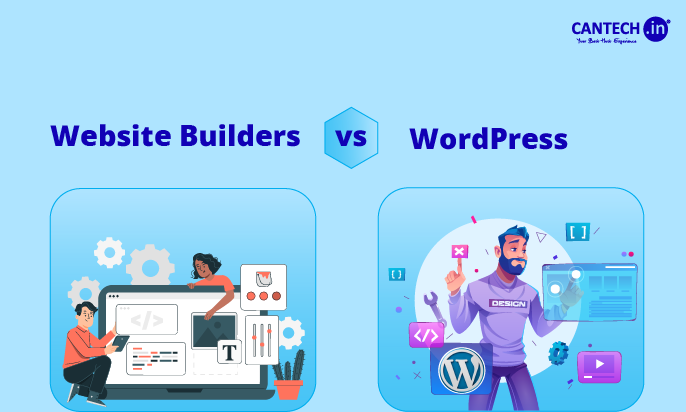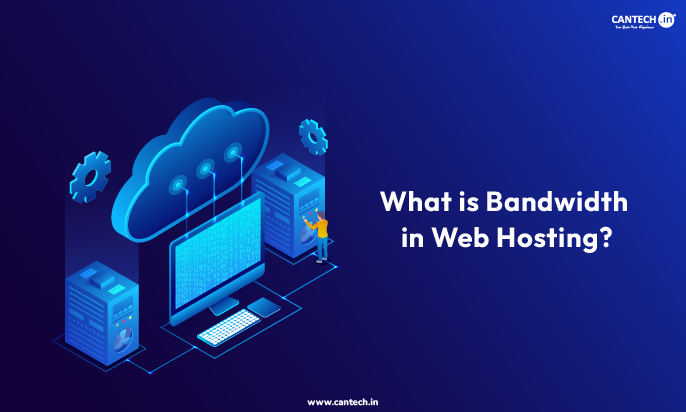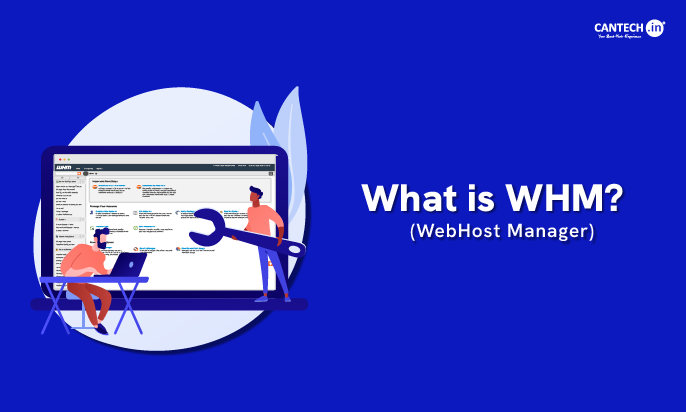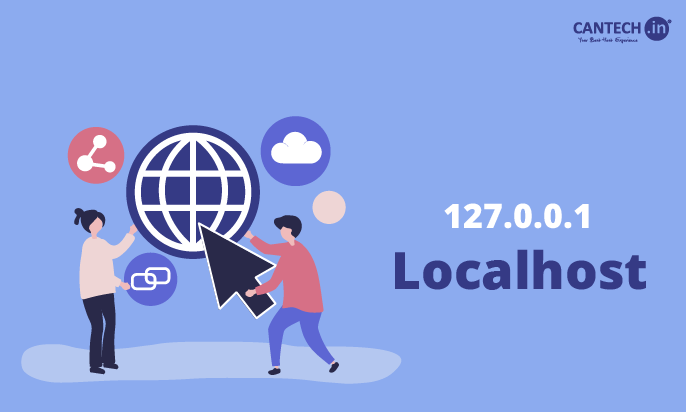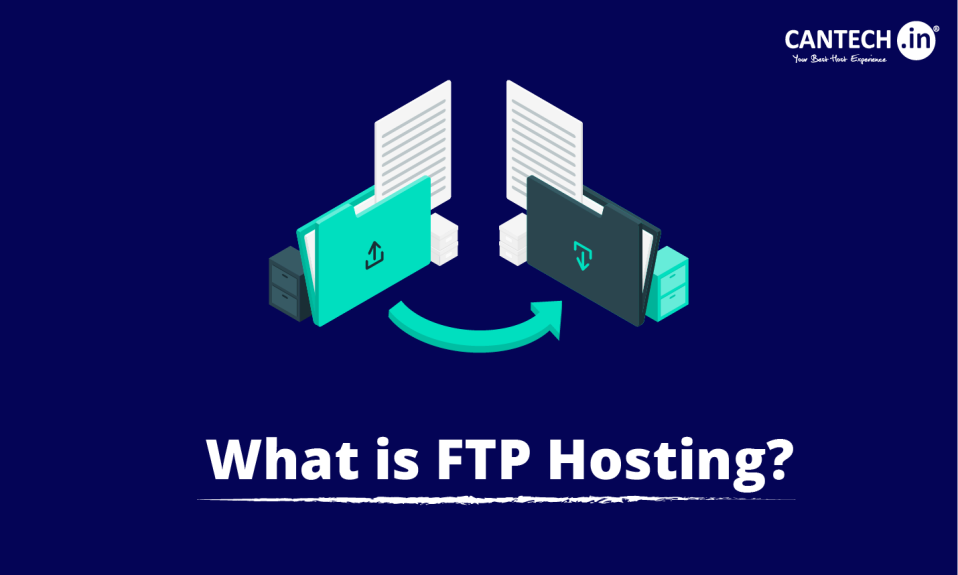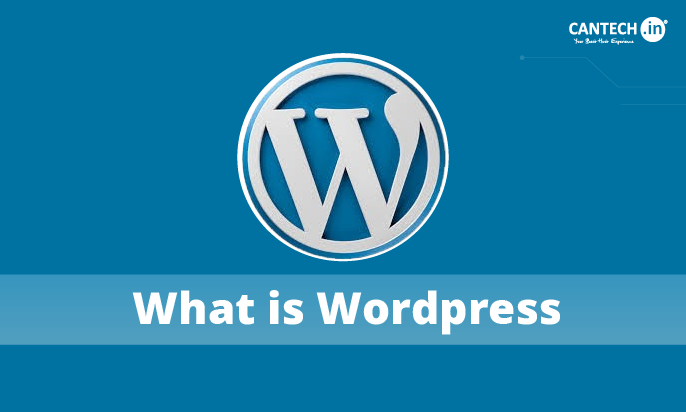Building a website has now become more than a choice. It is now a necessity for businesses or personal branding to showcase their skills, services, or ideas to a wider audience. Now, you may be questioning the best way to create a website that can truly reflect your goals and meet your visitor’s expectations. Well, various tools are available for the same and the challenge is no longer about learning complex coding but rather selecting the right platform suitable for your vision and requirements.
Website builders and WordPress are the most popular choices with unique features, benefits, and limitations.
On one side, website builders provide an all-in-one package for ease and quick results. On the other, WordPress offers deep customization and control. It is a strong choice for those looking to create unique and tailored experiences.
In this blog on the comparison of Website Builder vs WordPress, we will discuss the further differences in detail because understanding what is WordPress and Website Builder can guide you in picking the right platform.
What is WordPress?
WordPress is a powerful and popular platform to build websites. It started as a tool for blogging but today it has developed as a highly versatile website creation system. It has an extensive setup for managing, designing, and publishing content along with a variety of themes and plugins. All in all, you get complete control over your website’s look and feel with endless possibilities.
Below are the features of WordPress:
- You can easily install WordPress on most hosting services. They also provide a quick setup feature.
- The platform includes themes and plugins that enhance the design and functionality of your site.
- WordPress serves as a content management system (CMS). It gives you advanced control over the site’s pages and content.
- You will find tools for design, customization, and implementation. It is similar to website builders but with more control options.
What is a Website Builder?
Website builders provide a simpler way to create a website. Building a site required extensive coding knowledge before but website builders now provide a user-friendly graphical interface that anyone can use. They require minimal technical skills and have drag-and-drop features that simplify the process of designing and structuring a site. Below are the features that explain how Website Builders works:
- Website builders offer templates that you can customize to suit your needs.
- These tools often include a visual editor that allows you to add or adjust elements without needing code.
- You have a wide range of templates and layout options so the design process is quick and adaptable.
- The best Website builders like Wix, GoDaddy, Shopify, or Squarespace offer an easy and user-friendly experience for those focused on creating a site efficiently without needing advanced tools or coding skills.
Website Builder vs WordPress: Understanding the Differences
Website builders or WordPress meet different needs and preferences for creating a website. Website builders are user-friendly all-in-one solutions, whereas, WordPress functions as a content management system (CMS). Below we shall understand the further differences with the pros and cons of Website Builders and WordPress.
Meaning
What is a Website builder? Well, it offers an easy interface that simplifies the website creation process. They are designed for users with minimal technical knowledge. You can start by signing up for a plan, select a template, and start editing the site effortlessly. Its drag-and-drop feature makes it super-easy to to customize the websites without any coding requirements. Thus, seamless adjustments like changing text or rearranging elements can be done with a click and drag.
Now, what is WordPress? Generally, it requires a more hands-on approach. It needs a hosting service, WordPress software installation, and dashboard learning. It requires navigation to different sections through multiple steps like managing posts or changing themes. WordPress can require learning at first but is worth it and easy to use in the long run.
Customization
WordPress provides extensive customization benefits with thousands of themes and plugins available. Thus, you get extensive personalization for websites. You can add various functionalities tailored to specific needs using the vast repository of plugins.
Website builders also offer templates but usually offer fewer customization options compared to WordPress. You can select from a range of pre-designed templates but it is challenging to switch templates once you have started building the site.
Some builders provide a mobile view editor to ensure responsive design; however, the flexibility remains limited compared to what WordPress offers.
Functionalities
Website builders have various predefined features with various pricing plans. However, it may require to upgrade for additional functionalities as basic plans may not include required tools such as web analytics, payment gateway, advanced SEO, etc. Also, you may opt for paid add-ons available with the website builders. However, they may not be as extensive as the thousands available for WordPress.
You can find plugins for almost every required function with WordPress. You can choose from free and premium plugins to meet your specific requirements. They provide a robust framework for expanding a website’s capabilities.
eCommerce
You can choose WordPress or Website Builder if you are looking to create an online store. Both provide the required solution through differing approaches. Website builders usually offer eCommerce features within specific plans and make it easy to set up a basic online store. Moreover, you may need to upgrade to a higher plan for more advanced functionalities like cart recovery or product filters.
On the other hand, WordPress requires the installation of an eCommerce plugin like WooCommerce. This plugin comes with essential eCommerce features to enable online selling. Moreover, you must also consider hosting capabilities to ensure your online store performs well under traffic. WordPress provides more flexibility for scaling as a business grows but it also demands a greater level of involvement from the user.
Security Measures
Website builders handle most security concerns to protect sites against common threats. They implement SSL certificates and other measures automatically so it reduces the burden on you.
Whereas, WordPress security depends mostly on your actions and hosting services. Site owners need to keep their software, themes, and plugins updated to protect against vulnerabilities. This requires a proactive approach to monitoring and updating. Also, you must select reliable themes and plugins because using unverified sources can expose a site to malware.
Maintenance
Website builders simplify maintenance tasks with automatic updates and bug fixes as part of their service. You just need to renew your subscription in a timely manner. However, the WordPress site requires ongoing attention. You must regularly backup websites and update the WordPress core software along with themes and plugins. This may add to complexities but also empowers you with control over the site’s functionality and security.
Scalability
Website builders offer limited features and templates available within your chosen plan. So, you need to upgrade plans for more tools. Still, the underlying framework remains unchanged.
WordPress has great scalability. You can upgrade your hosting plans and integrate advanced plugins to flexibly create complex sites that can accommodate varying traffic and functionality needs.
Support and Documentation
WordPress vs Website Builder support varies in terms of channels and community. Website builders offer customer service through chat or email to assist with technical issues. However, the resources can be limited compared to WordPress because WordPress has a large community and extensive documentation. You can get access to forums, tutorials, and articles to troubleshoot issues or learn new techniques.
Overall Purpose
WordPress or website builders, the choice depends on individual needs.
Website builders are ideal for beginners looking for simplicity and speed. If you wish to get a website up and running quickly without getting into technical details, Website builders work best for your site.
In contrast, WordPress offers flexibility, customization, and control over a website’s design and functionality. If you want to invest time in learning, you will benefit from the extensive capabilities that WordPress offers.
WordPress vs Website Builder: The Overview
The pros and cons of website builders and WordPress are discussed in detail in the above comparison. Below, we will have an overview of Website Builder vs WordPress for a quick idea of their differences –
| Feature | WordPress | Website Builders |
| Setup Requirements | WordPress requires you to select a hosting provider, install the software, and configure settings. | Website builders provide an all-in-one solution with hosting, domain registration, and tools included. |
| User Experience | Beginners may find it overwhelming due to its extensive options and more complex interface. However, it becomes easier to use once you become familiar with it. | They provide intuitive drag-and-drop interfaces that simplify the website creation process. |
| Customization | A vast library of themes and plugins offers extensive customization for the creation of complex websites. | Website builders provide a limited number of customizable templates so design flexibility is restricted. |
| E-commerce Features | WordPress requires plugins like WooCommerce for e-commerce functionality to create comprehensive online stores. | They include e-commerce features within specific plans with limited customization. |
| Learning Curve | It requires learning for beginners but offers greater control and functionality once you are well-versed with it. | They provide quick setup and ease of use. They are suitable for those with limited technical skills. |
| Maintenance | WordPress demands regular maintenance – backups and updates. It may need some technical knowledge for the same. | They automate maintenance tasks so you can focus on content without technical concerns. |
| Security | The security depends on the website owner’s monitoring and steps like updating software, themes, and plugins. You must also ensure you use reliable plugins and themes. | Website builders manage security aspects on your behalf, but you should still ensure SSL certificates and secure passwords are in place. |
| Community Support | WordPress has a large community with extensive documentation, tutorials, and forums. | Website builders offer customer support through help centers and customer service channels but may not have community support. |
Website Builder vs WordPress: Which One is the Right Choice
Each option offers unique advantages as per different needs. Below are the aspects to evaluate Website Builder vs WordPress –
Factors to Consider When Choosing One

Simplicity and Speed – Website builders are more user-friendly. The simple interfaces and drag-and-drop features make it easy for beginners to navigate. Thus, you do not need technical skills and can create a website quickly. Even if you start from scratch, you can publish the site within a short time frame.
WordPress requires learning. It has advanced capabilities but you need to learn its functionalities to set up your website properly. Thus, if you can invest the time, you can utilize a powerful tool that supports extensive customization.
Design – Website builders have many templates. You can quickly adjust colors and layouts to suit your tastes. However, they provide a less unique appearance.
Whereas, WordPress offers the best customization with a wide range of themes and plugins. You can create a unique site tailored to your vision. Well, initial setup may take more effort but the final website design and performance can be highly individualized and professional. It provides a clean and professional image without displaying any branding associated with WordPress.
Scalability – Scalability is the best with WordPress. It can efficiently manage high traffic levels. It can handle multiple pages and simultaneous users with great performance. Thus, businesses expecting high-level growth should consider WordPress.
However, Website builders handle traffic and page views depending on the plan you choose. It is essential to check the specific terms of your website builder to understand any potential limitations on your site’s growth.
Security Measures – Website builders handle security updates and maintenance. Moreover, WordPress requires you to take responsibility for updates and security measures unless you opt for a managed hosting plan that provides the benefits of expert maintenance. This way, your site remains secure and up-to-date.
SEO Capabilities – Effective search engine optimization (SEO) drives organic traffic to your website. Website builders often include built-in SEO tools, for example, image alt text and meta tags. These features make it easy to enhance visibility.
WordPress is powerful but requires additional plugins for optimal SEO performance. You can start with basic features but might need tools like Yoast SEO to fully utilize its capabilities. This added flexibility gives better long-term results if you can invest the effort.
Conclusion
The Website Builder vs WordPress depends on your website’s needs and goals.
WordPress is ideal for websites and eCommerce platforms of all types. WordPress provides robust plugins and templates for custom designs. Its scalability and range of features provide a solid foundation for business growth.
Furthermore, if you need full control over your website, WordPress allows for complete ownership. You can easily back up files and switch hosting providers without restrictions.
When individuals or businesses do not have coding skills, or technical knowledge or require a quick solution, you can go for the best Website Builders. They make the website creation process easy and offer templates for basic to high-level sites with different plans.
If you require practicality more than extensive customization, website builders allow you to create functional sites rapidly like portfolios, landing pages, etc. They provide the right solution if need an online presence without the complexities associated with more advanced platforms.
Take time and evaluate your requirements carefully as per the long-term vision for your website.
FAQs for Website Builder vs WordPress
What are the Pros and Cons of Website Builders?
A website builder can be beneficial for individuals with minimal technical knowledge or limited time. They provide user-friendly interfaces and ready-made templates that facilitate quick website development. However, if you need more complex or tailored websites, you may need a professional web developer or a more advanced CMS like WordPress.
How Long Does It Take to Build a Website with WordPress?
The time required to build a website with WordPress depends on the complexity of the site. A simple blog or portfolio can be set up in a few hours.
However, larger sites with extensive features may take days or even weeks to complete. Proper planning and professional help can make the process simple.
What Are the Main Benefits of WordPress?
WordPress has various benefits like extensive customization options, a vast library of themes and plugins, and strong community support. You can create anything from simple blogs to complex e-commerce sites. It offers flexibility for different projects.


